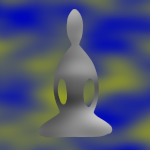January 17 – Cultivating Wholesome States: A Spark of Courage
Dear Friends, As we continue exploring The Third Wise Effort–cultivating wholesome states–I would like to share an excerpt from John O’Donohue’s poem For Courage. These lines remind us that even a small spark of energy can nourish qualities like mindfulness, kindness, and joy: Close your eyes.Gather all the kindlingAbout your heartTo create one sparkThat is all you needTo… Read More »
